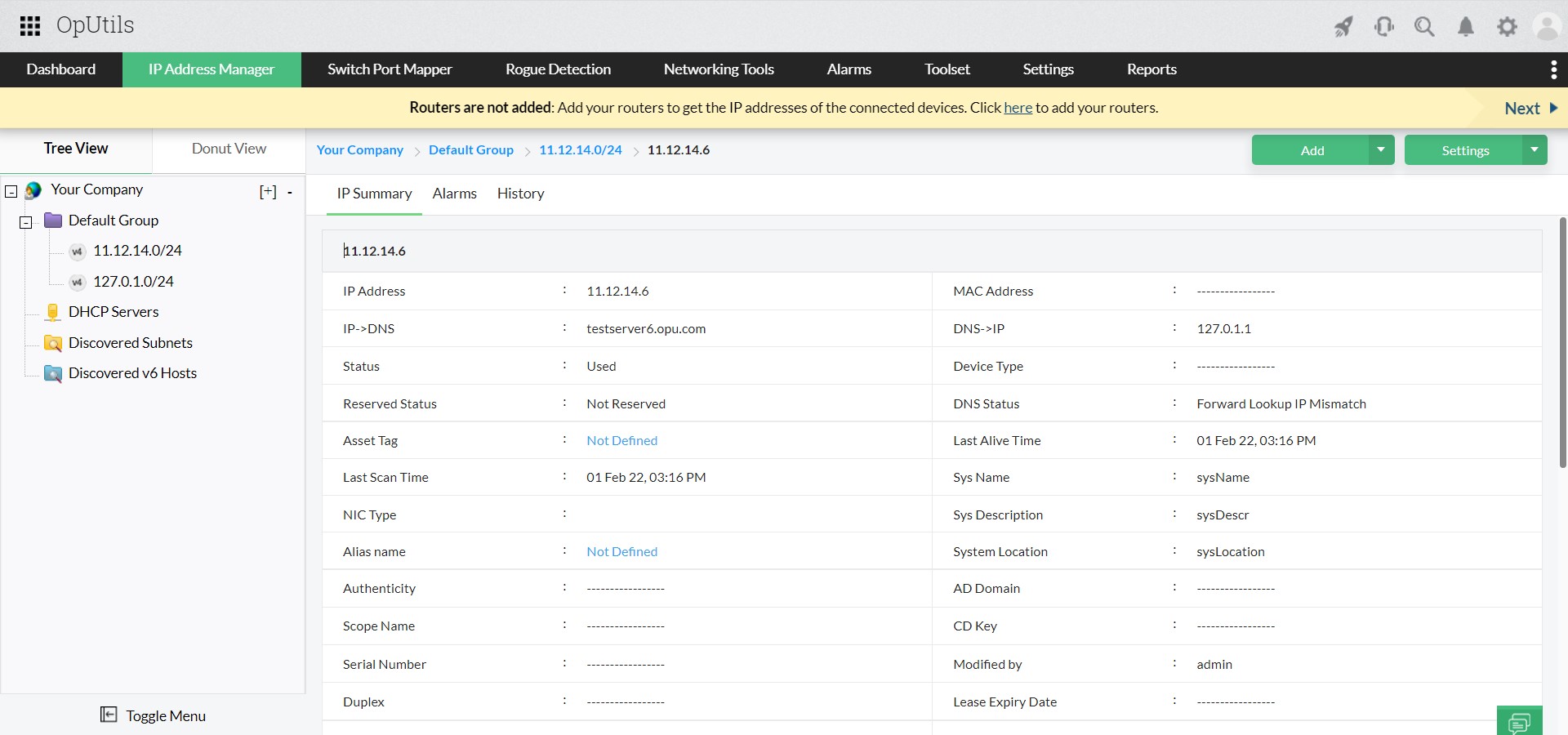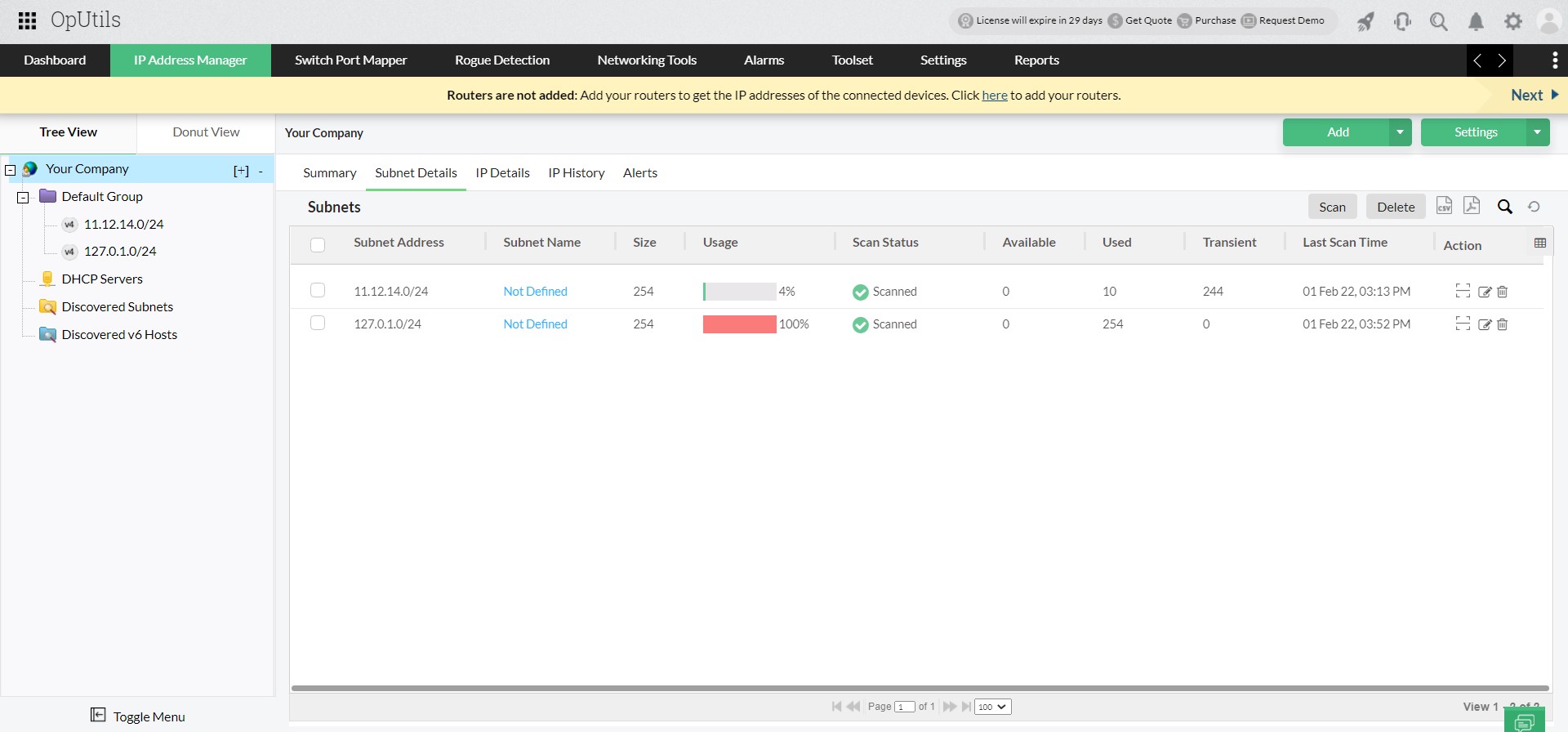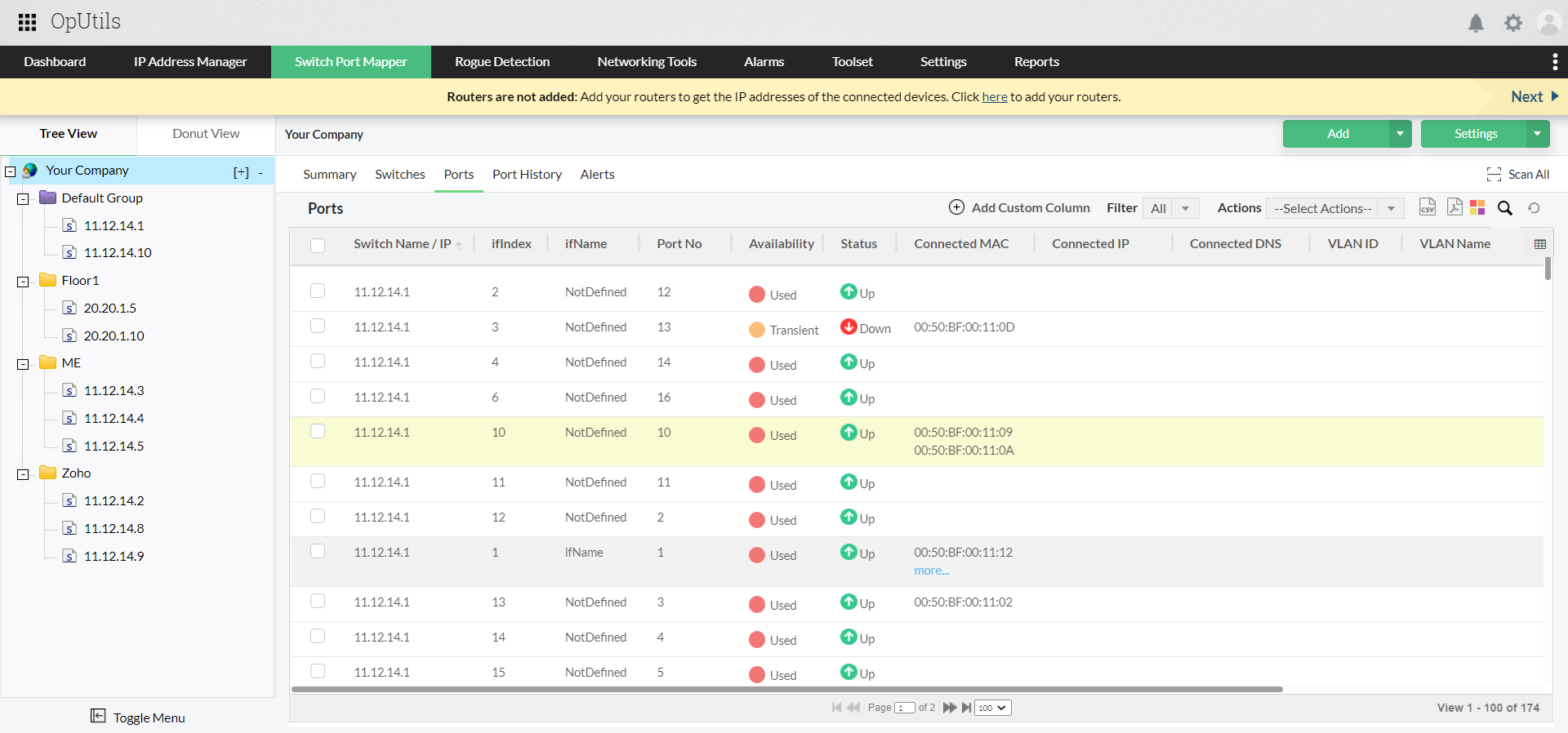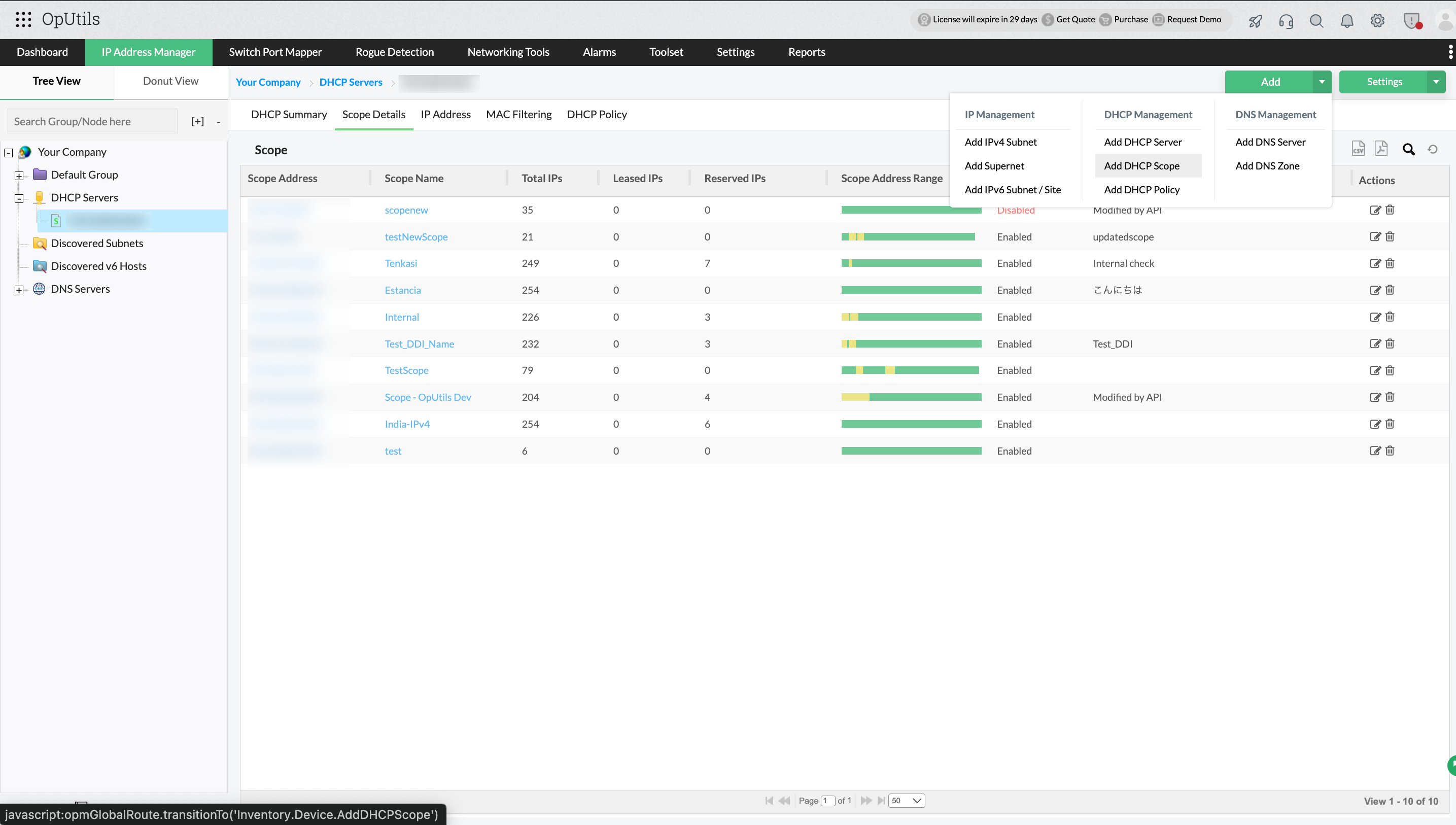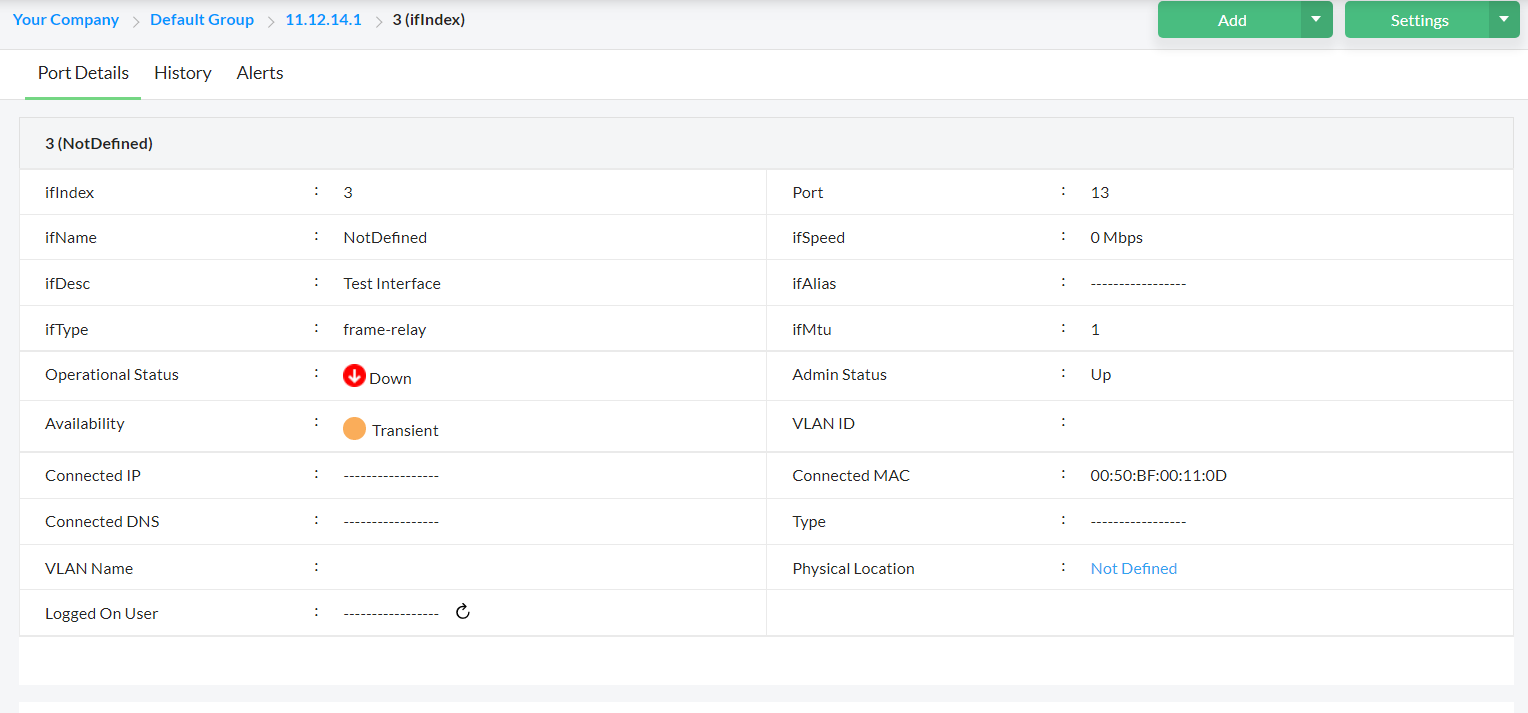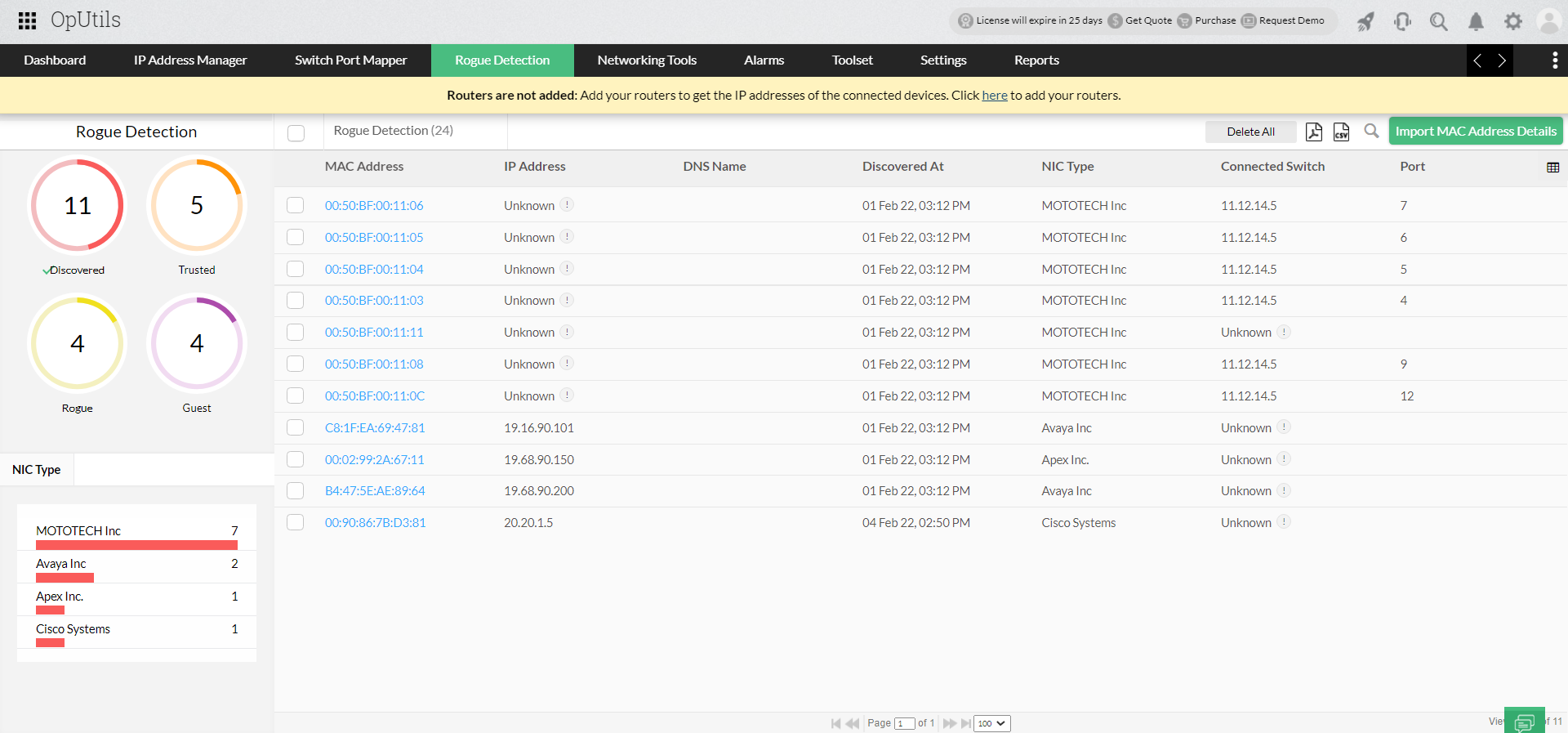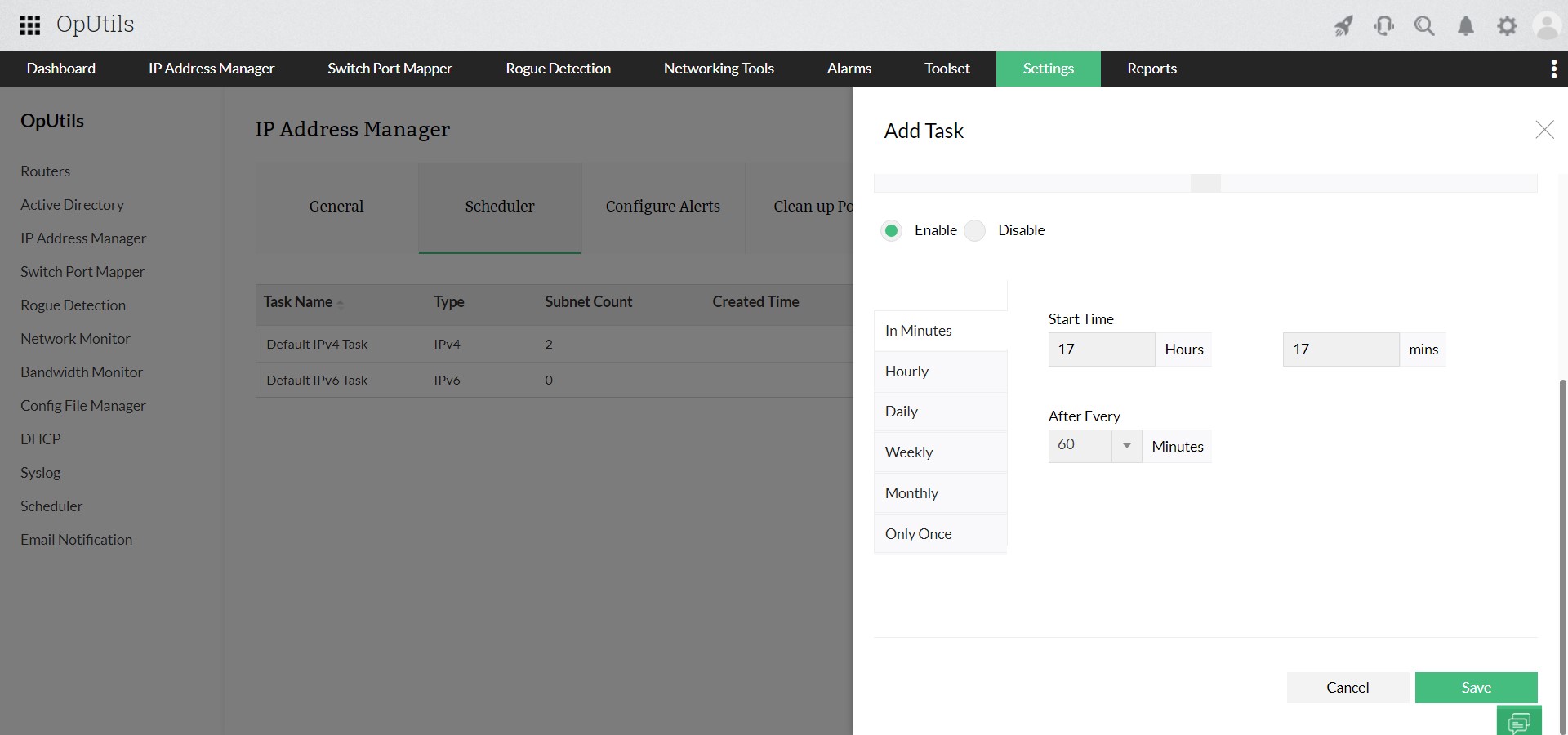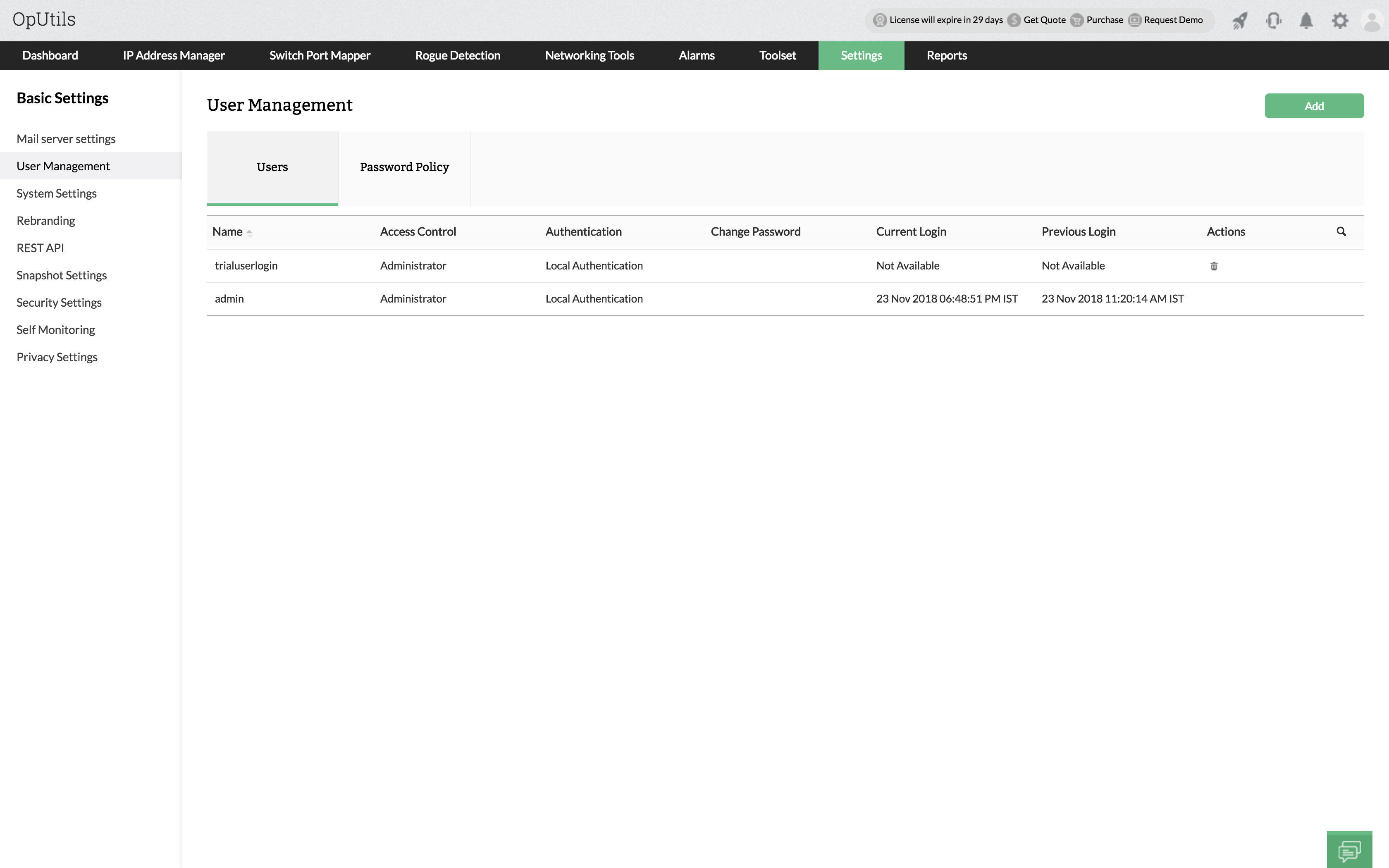OpUtils’ advanced network scanner brings together IP scanning, port scanning, and device discovery capabilities, giving IT teams unified visibility across their network environment. A network scanner probes IP addresses, ports, and connected devices to verify availability, map services, and detect potential risks, enabling faster resolution of network issues.
Designed for modern, dynamic environments, OpUtils' network scanner helps you track devices, users, switch ports, and IP utilization, without relying on manual tools or spreadsheets. With:
- Real-time discovery of devices and services
- Scheduled scanning across distributed networks
- Threshold-based alerts for anomalies and outages
- Full support for IPv4 and IPv6 scanning
OpUtils makes network scanning scalable, accurate, and continuous.
Its intuitive, code-free interface and 30+ bundled network utilities help teams monitor IP infrastructure, detect anomalies, and enrich asset data, enabling faster troubleshooting and more efficient network operations.
